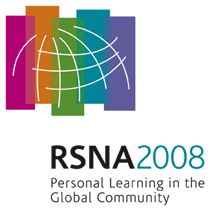
Abstract Archives of the RSNA, 2008
Ji Won Lee MD, Presenter: Nothing to Disclose
In Sook Lee, Abstract Co-Author: Nothing to Disclose
Hak Jin Kim MD, Abstract Co-Author: Nothing to Disclose
Do Kyung Kim, Abstract Co-Author: Nothing to Disclose
Jung Sub Lee, Abstract Co-Author: Nothing to Disclose
Yeon Joo Jeong MD, Abstract Co-Author: Nothing to Disclose
Sung Jang Kim, Abstract Co-Author: Nothing to Disclose
Tae-Yong Moon MD, PhD, Abstract Co-Author: Nothing to Disclose
et al, Abstract Co-Author: Nothing to Disclose
Although the diagnosis of traumatic spinal dural tears is important, it is very difficult to diagnose. The purpose of this study was to detect the reliable MRI findings suggesting dural tear in spinal burst fracture.
We retrospectively reviewed spine MRIs of 21 patients with dural tear (study group) and 33 without dural tear (control group), all of whom had spinal burst fractures. MR images were assessed about interpedicular distance, the angle of retropulsed segment, the ratio of the central canal diameter, the presence or absence and the degree of lamina fracture, and the extent of epidural hemorrhage. Above parameters were compared between two groups.
The mean values of the grade of lamina fracture, the interpedicular distance, the ratio of the central canal diameter, the angle of the retropulsed segment, and the extent of epidural hemorrhage in each study and control group were as follows: 1.77 and 0.86 (p = 0.034), 28.7 mm and 26 mm (p = 0.02), 0.37 and 0.58 (p = 0.008), 112° and 128 (p = 0.05), 2.37 and 1.4 (p = 0.11). The ratio of the central canal diameter was the most reliable factor suggesting dural tear compared with the other factors
Dural tear might be suggested when MR findings of lamina fracture exceeding grade 1, the interpedicular distance greater than 28 mm, the central canal ratio less than 0.46, and the acute angle of the retropulsed segment less than 135 degrees are seen.
Highly suggestion of dural tear in burst spinal fracture on routine spine MRI might be helpful for preventing of postoperative neurologic deficit.
Lee, J,
Lee, I,
Kim, H,
Kim, D,
Lee, J,
Jeong, Y,
Kim, S,
Moon, T,
et al, ,
Dural Tear in Spinal Burst Fracture: Predictable MR Findings. Radiological Society of North America 2008 Scientific Assembly and Annual Meeting, February 18 - February 20, 2008 ,Chicago IL.
http://archive.rsna.org/2008/6013483.html

